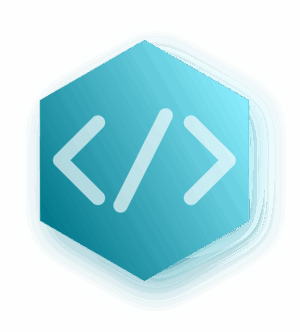The FAQPage schema using JSON-LD code transforms FAQ sections into interactive, search engine-friendly content. It improves visibility on SERPs, boosting click-through rates and user engagement. This structured data format helps search engines understand FAQs, displaying them richily and enhancing snippet performance. By organizing content logically, including relevant keywords, and keeping FAQs updated, websites can maximize SEO benefits, increase online presence, and provide valuable information directly to users. Regular analysis of KPIs like CTRs, average position, and engagement time is crucial for continuous optimization.
Adding the FAQPage schema to your content is a strategic move that boosts user engagement and improves search engine visibility. By implementing the FAQ JSON-LD code, you enable rich FAQ results on search engines, enhancing your website’s SERP real estate. This article guides you through understanding the benefits of this schema, optimizing your FAQ page, and measuring success, ensuring your content resonates with users and ranks higher in searches.
- Understanding FAQPage Schema and Its Benefits
- Implementing the FAQ JSON-LD Code
- Enhancing User Experience with Rich FAQ Results
- Boosting Search Engine Visibility: SERP Real Estate
- Best Practices for Effective FAQ Page Optimization
- Measuring Success and Continuous Improvement
Understanding FAQPage Schema and Its Benefits

The FAQPage schema is a powerful tool for enhancing online content and improving user experience. It’s a structured way to present Frequently Asked Questions (FAQs) using JSON-LD code, allowing search engines to understand and display your content in rich, interactive results. By implementing this schema, you’re essentially telling search algorithms exactly what your FAQ section is about, making it more likely to appear in featured snippets or other enhanced search result formats.
This schema offers numerous benefits, including increased user engagement as it provides quick answers to common queries, and better visibility on search engine results pages (SERPs). When users see rich FAQ results with direct answers, they’re more inclined to interact with your website, leading to higher click-through rates and longer sessions. Moreover, the FAQPage type schema ensures your content is correctly identified and categorized, making it a valuable asset for any website striving for better search engine optimization (SEO) and user satisfaction.
Implementing the FAQ JSON-LD Code

Implementing the FAQ JSON-LD Code is a straightforward process that involves integrating specific markup into your website’s HTML. This schema allows search engines to understand and display your Frequently Asked Questions (FAQ) content in a rich, enhanced format within Search Engine Results Pages (SERPs). By adding this code, you’re essentially providing valuable information directly to users, increasing the likelihood of engagement and reducing bounce rates.
The FAQ JSON-LD Code structures your FAQ data using JavaScript Object Notation (JSON-LD), which offers a standardized way to present question-and-answer pairs. This structured data helps search engines like Google recognize your content as a comprehensive FAQ page, eligible for rich results display. It’s a simple yet effective method to boost your website’s visibility and provide users with a more interactive and informative experience.
Enhancing User Experience with Rich FAQ Results

Implementing the FAQPage schema is a powerful strategy to elevate user experience and drive better search engine results. By adopting this structured approach, websites can present frequently asked questions (FAQs) in an organized, visually appealing manner, directly addressing user queries. The FAQ JSON-LD Code plays a pivotal role in conveying this structured data to search engines, enabling them to understand the content’s nature.
This schema goes beyond mere question and answer pairs; it optimizes snippet performance, ensuring that when users find their questions among rich FAQ results, engagement soars. With the right implementation, How to Add FAQ Schema becomes a straightforward process, allowing businesses to focus on providing valuable insights while SEO efforts benefit from enhanced FAQ Snippet Optimization. This strategy not only improves user satisfaction but also increases the likelihood of capturing valuable SERP real estate, showcasing the site’s expertise and practicality.
Boosting Search Engine Visibility: SERP Real Estate

Adding the FAQPage schema to your content is a powerful strategy to boost search engine visibility and capture more real estate on Search Engine Results Pages (SERPs). By implementing this structured data, search engines can better understand your content’s focus and relevance, leading to improved rankings. The FAQPage schema allows you to present frequently asked questions and their answers in a rich, interactive format, enhancing user engagement.
With the use of FAQ JSON-LD Code, you can ensure that your website provides valuable information efficiently. This structured data enables search engines to index your content more accurately, resulting in richer and more informative snippets when users search for related queries. By optimizing for rich FAQ results, you not only attract clicks but also foster higher user satisfaction, as it offers quick access to the answers they seek.
Best Practices for Effective FAQ Page Optimization

To optimize your FAQ page effectively, start by structuring your content logically and coherently. Organize FAQs into clear categories and subcategories to help users navigate easily. Each question should have a concise, specific answer, focusing on providing direct value to the reader. The FAQ JSON-LD Code is a powerful tool for signaling search engines about this structured data, enhancing your chances of achieving Rich FAQ Results.
Use the Schema FAQPage Type to define the page’s purpose and structure further. Ensure each question is unique and avoids duplicating content from other parts of your site. FAQ Snippet Optimization techniques like including relevant keywords in questions and answers can also boost visibility in search results. Remember, a well-optimized FAQ page not only improves user engagement but also enhances your website’s SERP real estate, making it a valuable asset for any digital strategy.
Measuring Success and Continuous Improvement

Measuring success is a crucial step after implementing the FAQPage schema. By utilizing tools like Google Search Console and analytics software, you can track key performance indicators (KPIs) such as click-through rates (CTRs), average position, and user engagement time on your FAQ page. These metrics will help you understand how effectively your rich FAQ results are performing and identify areas for improvement.
Continuous improvement is an ongoing process that requires regular analysis of your FAQ JSON-LD Code’s performance. By integrating Accordion Schema SEO into your content strategy, you can enhance user experience and potentially increase organic traffic. Continuously updating your FAQs to address new questions and trends will not only keep your content relevant but also reinforce your website’s authority in the eyes of search engines, ultimately optimizing your SERP real estate.
